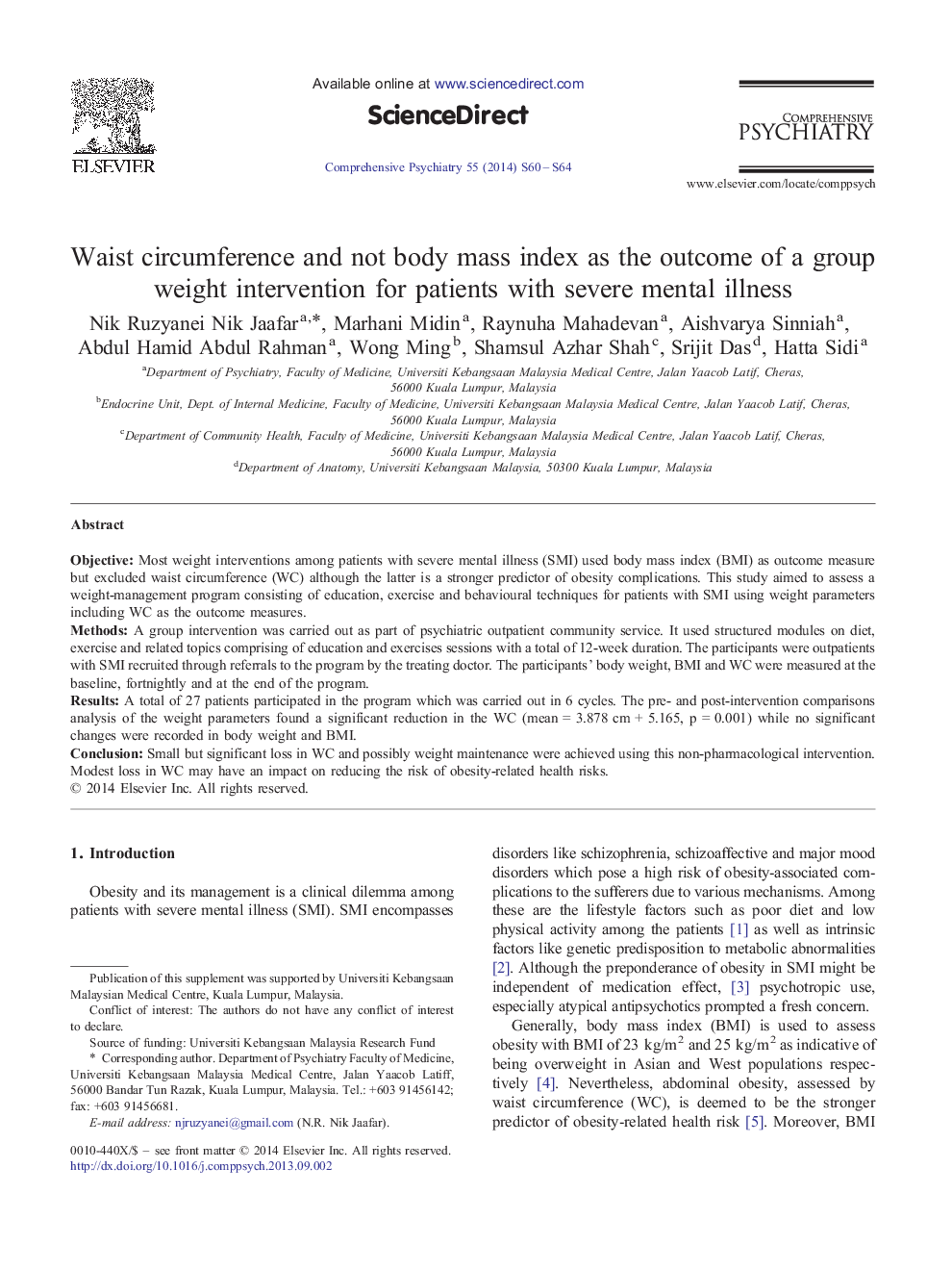| Article ID | Journal | Published Year | Pages | File Type |
|---|---|---|---|---|
| 317469 | Comprehensive Psychiatry | 2014 | 5 Pages |
ObjectiveMost weight interventions among patients with severe mental illness (SMI) used body mass index (BMI) as outcome measure but excluded waist circumference (WC) although the latter is a stronger predictor of obesity complications. This study aimed to assess a weight-management program consisting of education, exercise and behavioural techniques for patients with SMI using weight parameters including WC as the outcome measures.MethodsA group intervention was carried out as part of psychiatric outpatient community service. It used structured modules on diet, exercise and related topics comprising of education and exercises sessions with a total of 12-week duration. The participants were outpatients with SMI recruited through referrals to the program by the treating doctor. The participants’ body weight, BMI and WC were measured at the baseline, fortnightly and at the end of the program.ResultsA total of 27 patients participated in the program which was carried out in 6 cycles. The pre- and post-intervention comparisons analysis of the weight parameters found a significant reduction in the WC (mean = 3.878 cm + 5.165, p = 0.001) while no significant changes were recorded in body weight and BMI.ConclusionSmall but significant loss in WC and possibly weight maintenance were achieved using this non-pharmacological intervention. Modest loss in WC may have an impact on reducing the risk of obesity-related health risks.
